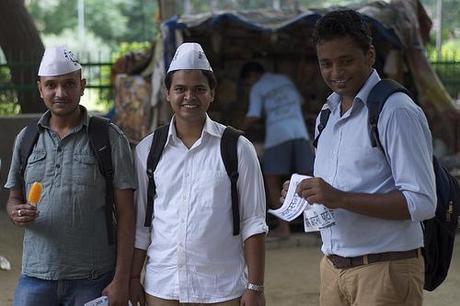China pledges historic social and political liberalisation
China’s ‘communist’ government has announced the abolition of its labour camps network, together with the easing of its drastic one child policy. The 160,000 prisoners within the camps, based upon the gulags of the USSR, are set to be released, or in most cases, processed in other parts of the country’s justice system. It is hoped that this marks an end to the human rights abuses and harsh conditions that have hitherto existed in the system. To a similar end, the Chinese government will now permit couples to have two children where either of the parents is an only child themselves. Chinese authorities are keen to curtail the phenomenon of “leftover men”- millions of men who are left single due to the effects of large numbers of illegal sex-selective abortions on the female population.
Richard Branson calls for Uganda boycott
The tycoon behind the Virgin business empire called on Western businesses and tourists to boycott the east African nation of Uganda. Branson posted his call on his website, saying that legislation passed in Uganda making homosexuality punishable by execution- attracting condemnation from around the world- could not be ignored by those supporting Uganda’s economy. In the majority of Africa’s 54 countries, homosexuality is illegal, though few have followed Uganda’s trajectory of regression. Uganda now has one of the most severely homophobic positions in the world, in which failure to report homosexual activity warrants an extensive prison sentence in itself.
Hospice firms accused over ‘survivors’
An in depth investigation by the Washington Post newspaper has found that the $17 billion dollar hospice industry has been admitting patients with little or no risk of dying. Over the past three years, the number of hospice ‘survivors’ has risen by half, whilst profits have increased by 400% to over $1,900 per patient. It is thought that hospices would have a financial interest in admitting healthy patients, who require fewer costly visits from medical professionals. Concerns are heightened by the fact that the federal Medicare programme pays over 80% of all hospice fees: at a flat tariff of $150 a day. Accordingly it has been alleged that hospice companies are draining scarce healthcare resources for commercial gain.

Campaigners of the Aam Aadmi Party (Photo credit: New Delhices)
Berlin bans holiday lets
Berlin’s state government, which is rapidly acquiring a reputation for deploying radical and innovative solutions to its problems, has imposed a ban on all short-term housing rentals in a bid to ease housing shortages. The Green Party instigated the move after public dissent with the poor behaviour of holiday tenants grew in response to a surge in holiday home conversions. The move is controversial, however, and the city’s property owners’ association (which represents a good proportion of the 12,000 holiday homeowners in the city) has condemned it as an attack on free enterprise. There is little sign that this has convinced residents that free enterprise warrants an inundation of drunken, abrasive tourists.
Cuba extends personal credit
In the latest acts of economic reform on the Caribbean island, the car market has been opened up and the system of personal loans has been made more flexible. Under new rules, any adult may purchase a car in Cuba without needing a permit (which in practice was only obtainable through bribery). Also, Cubans may now take smaller personal loans or longer-term ones in a bid to further boost the self-employment sector that the government appears keen to grow instead of pursuing outright privatisation. Indeed, since the denationalisation of the hairdressing, taxi and restaurant industries in 2011, new owners have complained about the difficulty in obtaining credit to fund essential investment. Many anticipate economic rewards following this change.
Anti-corruption party gets to work in Delhi
The state government in Delhi is to be overhauled following the election of a coalition government dominated by the anti-corruption Common Man’s Party. The chief minister of Delhi, Arvind Kejriwal, has been inundated with correspondence from the city’s residents who are looking to the new government to resolve problems associated with inefficiency and cronyism in public administration. Kejriwal has asked the public to give him “ten days” to establish a formal and universal complaints system to process these issues efficiently. Opposition parties in the national parliament are watching with concern the performance of the Delhi government, worried that the Common Man’s Party’s success could spread.
Four Al-Jazeera journalists arrested
In a move with disturbing implications for freedom of speech and democracy, Egypt’s interior ministry has arrested four journalists from the pioneering Al-Jazeera news channel for broadcasting what it has termed “false news”. Further to this, authorities have alleged that the journalists have had secret meetings with officials from the Muslim Brotherhood, which was officially declared a terrorist organisation two weeks ago. It is hoped that the journalists will only be detained temporarily, as their colleagues from Islamist media have been in recent months, but this is the first time the new military regime have seriously threatened Western journalists.

